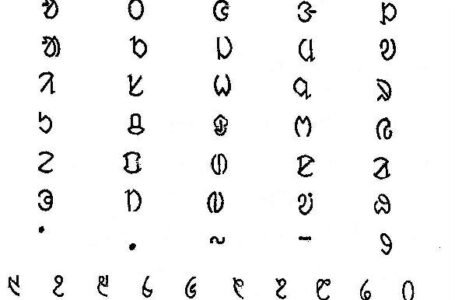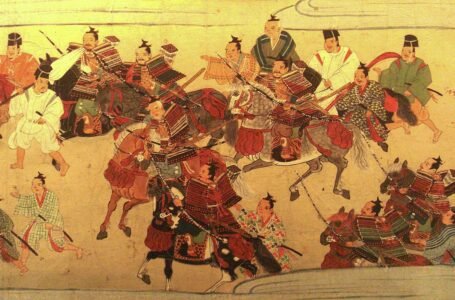Fate: A Parable of Destiny and Deliberate Blindness

-Trushti Dand
Is it truly fate that shapes our lives, or do our choices blind us to the opportunities placed right before us? In a quiet corner of the world, where dusty roads connect the humble and the grand, unfolds a deceptively simple yet profoundly philosophical tale titled Fate. At its surface, it narrates the interaction—or rather, the missed interaction—between a wealthy, generous man and a poor, half-starved passerby. The rich man, living in a splendid mansion with his equally kind-hearted wife, notices the daily routine of the ragged poor man who walks past their home. Moved by compassion, the wife urges her husband to help the unfortunate soul. But the man hesitates, citing the poor man’s pride and possible refusal. Determined to help without bruising the man’s dignity, he devises a plan to anonymously place gold coins on the road, directly in the poor man’s path. However, in a curious twist of events, just as the man reaches the exact spot where fate—or perhaps fortune—waits, he decides to walk with his eyes closed, imagining what life would be like if he were blind. In that moment of self-imposed darkness, he unknowingly bypasses the life-changing treasure. The rich man, watching this unfold, turns to his wife and says, “Didn’t I tell you? He is not destined to get the money. It is God’s will that he will lead his life as a poor man.” What appears to be a story of missed opportunity becomes a meditation on destiny, free will, and the strange dance between chance and choice.
Culturally and historically, this story mirrors the age-old debate that has long dominated Indian philosophical discourse: the tension between karma (one’s actions and their consequences) and bhagya (fate or destiny). In traditional Indian narratives, especially those influenced by Hindu dharma and folk wisdom, there is a deep belief that certain events in life are predestined. However, there is also the powerful counter-belief that human will and action can alter one’s fate. This tale situates itself right at the crossroads of that debate. The wealthy man, while generous, represents a passive approach to charity—believing in giving but only if the universe allows it to happen naturally. His wife, on the other hand, urges immediate and direct action, showing a more emotionally driven, empathetic response. The poor man, ironically, becomes both the central figure and the mystery of the story. He is not pitied as helpless but portrayed as curious, thoughtful, and perhaps philosophically inclined. His decision to close his eyes is not laziness or ignorance—it’s an experiment in perspective, a metaphysical inquiry. Yet this very act leads to his loss, suggesting that even the most well-intentioned or imaginative detour might carry consequences we cannot foresee.
The themes embedded in Fate run deep. At the heart is the philosophical question: are we masters of our destiny, or are we walking blind through paths already carved by a divine force? It explores the complexity of altruism—what it means to truly help someone, and whether help unasked for is even help at all. The story also contemplates dignity and pride, suggesting that some people would rather suffer in silence than accept charity, especially when it risks undermining their self-respect. There’s a subtle commentary on wealth and generosity too—not all giving is selfless, and not all receiving is simple. But perhaps the most striking theme is missed opportunity. The man doesn’t miss the gold because he’s ignorant or undeserving. He misses it precisely because he engages in a thoughtful act, which accidentally blinds him to the fortune that could have changed his life. This introduces a sobering irony: sometimes, it is not ignorance or laziness that leads to loss, but a thoughtful choice made at the wrong moment.
The story is rich in symbolism. The gold coins placed on the road represent more than just wealth; they symbolize opportunity, transformation, and divine intervention. Their placement on the ground, in the open, highlights how sometimes life-changing moments are not hidden in complexity but lie in our everyday paths. The act of walking with closed eyes stands as a potent metaphor for the way humans sometimes approach life—choosing not to see, not because they are blind, but because they are lost in questions, fears, or philosophical whims. The terrace from which the rich couple observe the scene also carries symbolic weight—it represents distance, privilege, and detachment. They have the luxury to observe and philosophize while the poor man lives the experiment firsthand. The contrast between the mansion and the thatched hut further underlines the disparities in not just wealth, but also perception and access to change.
Literarily, Fate uses a fable-like structure, with minimal characters and a tight, cause-and-effect narrative. The unnamed characters become universal archetypes—the rich man, the poor man, the compassionate wife—allowing the story to transcend specific settings and cultures. The story employs irony to great effect: the rich man, in trying to help without hurting pride, ends up creating a situation where the help is missed entirely. And the poor man, in choosing to simulate blindness—perhaps to prepare for adversity or test resilience—misses the very event that could have lifted him out of poverty. This situational irony is the story’s emotional and philosophical fulcrum. There is also a quiet use of foreshadowing in the rich man’s initial hesitation and his belief in fate, which ultimately becomes a self-fulfilling prophecy.
In a modern context, Fate resonates more powerfully than ever. In our world, where inequality continues to divide society, the story asks us to reconsider how we view charity, responsibility, and luck. How often do we assume someone is poor because they are destined to be so? How often do systems and people wait for others to “ask” before offering help? And how frequently do individuals, due to pride, fear, or sheer circumstance, miss chances for change? The tale is a gentle but firm nudge to both the privileged and the struggling. To the privileged, it says: do not let assumptions about dignity or destiny prevent you from helping directly and openly. To those who struggle, it whispers: keep your eyes open, for sometimes the universe does place gold in your path, even if disguised or unexpected.
There is also a poignant critique of overthinking in the story. The poor man’s decision to walk with closed eyes is not foolish—he is engaging in a thought experiment, perhaps even trying to understand life from a different perspective. Yet this moment of curiosity costs him dearly. In a world increasingly filled with distractions, introspection, and speculative thinking, the story is a reminder of the importance of awareness and presence. We must reflect, yes—but not at the cost of missing the opportunities around us.
Ultimately, Fate is a story that lingers long after it’s read. It refuses to give easy answers. Was the poor man destined to remain poor? Or did he unknowingly choose his path? Was the rich man’s approach truly generous or passively fatalistic? Should help be hidden, or boldly given? The tale becomes a mirror in which each reader sees their own biases, beliefs, and philosophies reflected. And perhaps that is its greatest strength—it does not just tell a story; it makes you examine your own.
In this rich parable of fate and free will, we find no villains, no heroes—only human beings caught in the mysterious weave of chance, choice, and belief. It teaches us that sometimes, we must walk with open eyes. For even when the road seems ordinary, fortune may lie just beneath our feet.


